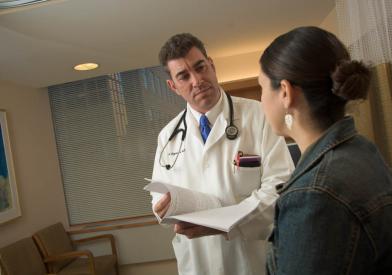What Is Stomach (Gastric) Cancer?
Stomach (gastric) cancer forms in the stomach, beginning in the cells, which are the building blocks that make up tissues of the stomach and other organs of the body. Stomach cancer begins in the lining of the mucosal (innermost) layer of the stomach and spreads through the stomach wall as it grows, often forming a mass called a tumor. The tumor can grow into nearby organs, such as the liver or esophagus. The cancerous cells can spread through blood or lymph vessels to other tissues in the body.
Although a relatively uncommon disease in the United States, stomach cancer is the second leading cause of cancer death in the world. It is a challenging condition to treat, since patients usually aren't diagnosed until the cancer has advanced to the point where it causes symptoms.
In the past two decades, our knowledge about stomach cancer has changed dramatically and prognosis has significantly improved. This is largely due to improved surgery and ICU care, as well as new therapies. Physicians at the Center for Esophageal and Gastric Cancer have a much better understanding of which patients are likely to benefit from a particular treatment approach or clinical trial, and can deliver a combination of surgery, chemotherapy, and radiation more precisely.






